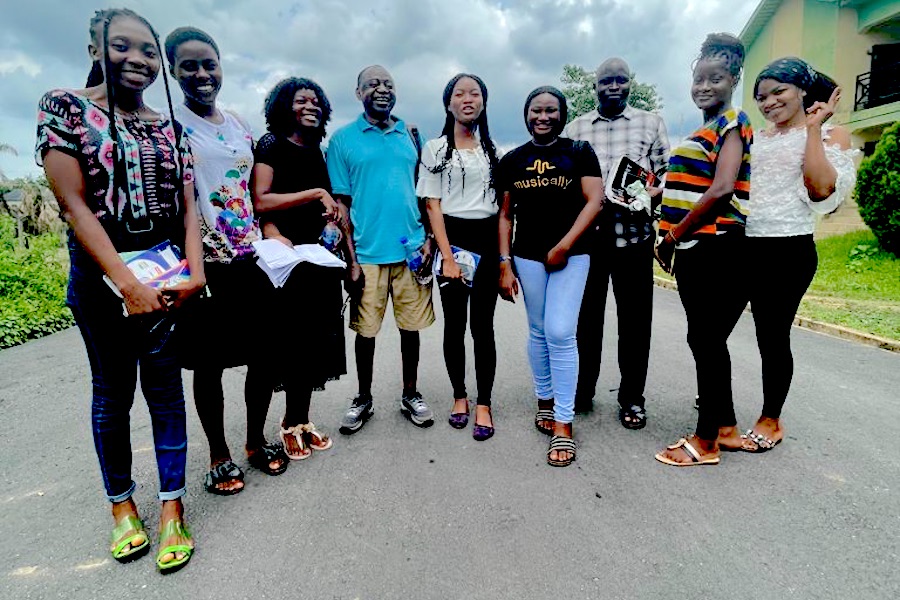One of the first African nations to adopt television broadcasting, Nigeria is home to a growing number of privately owned television stations and a growing number of industries in video and movie production, according to Dr. Kolawole Olaiya, professor of English at the Anderson University College of Arts and Sciences.
The Carnegie African Diaspora Fellowship Program awarded Dr. Olaiya a fellowship to travel to Nigeria to work with Wesley University in Ondo, Nigeria, to collaborate on research, develop curriculum, host workshops and conduct various activities related to mass communication during the summer of 2021. The Wesley University project is one of 74 that will pair African diaspora scholars with higher education institutions and collaborators in Africa to work on curriculum co-development, collaborative research, graduate training and mentoring activities in the coming months.
“Specifically the Nigerian University Commission (NUC) decided that mass communication programs in Nigerian universities should be unbundled,” said Dr. Olaiya, explaining that, rather than providing a general approach to communication as a whole, institutions are seeking to graduate students with specialized training in digital communication, journalism, advertising, or other areas.
Dr. Olaiya previously traveled to Wesley University in 2018 to help them develop TV production and other mass communication-related courses.
Dr. Olaiya points out that, for a long time the film industry in Nigeria was relatively undeveloped, because of the high costs associated with film production. An example of changes in Nigeria’s mass media is “Nollywood,” a term used to describe Nigeria’s growing film industry. Newer, more cost-effective technology for producing feature films and video content has given rise to entrepreneurs, who have found growing audiences through online platforms such as Amazon Prime, Netflix and YouTube.
Weaknesses, he says, lie in areas of scriptwriting and production planning. Dr. Olaiya is optimistic that the curriculum updates he’s been involved in will remedy these and other areas of need in Nigeria.
Dr. Olaiya is leaving a lasting impact on the students he’s been teaching as well.
Joy Itodo was at her 100 level when she first had a scriptwriting class with Dr. Olaiya in 2018. Itodo, who wants to go into advertising, says she appreciates how Olaiya helped students get needed laptops and phones.
“It’s a great privilege to have Dr. Kolawole in our school. He taught us script writing three years ago and has been teaching us documentary production for the semester,” Itodo said. “I learned what a documentary is, the difference between a documentary and fiction, consideration that goes into funding a documentary, crews needed in documentary production, types of sound and types of documentaries.”
While taking Dr. Olaiya’s scriptwriting class, Funmilayo Ogunsanwo was inspired to pursue professional scriptwriting. She says, “He includes everyone and gives listening ears. Classes were very detailed… I could relate them to my life experience.”
Peace Olanrewaju, who is studying scriptwriting and documentary production from Dr. Olaiya, is also interested in advertising.
“I find joy in informing people on what’s going on around them,” Olanrewaju said. “I learned how to write. I also learned about funding documentaries and how to write a treatment script. I also learned about camera shots and movement and types of sound.”
The Carnegie African Diaspora Fellowship Program, now in its fourth year, is designed to reverse Africa’s brain drain, strengthen capacity at the host institutions and develop long-term mutually beneficial collaborations between universities in Africa and the United States and Canada. The program is funded by the Carnegie Corporation of New York and managed by the Institute of International Education (IIE), in collaboration with United States International University-Africa. A total of 471 African Diaspora Fellowships have been awarded to scholars since the program’s inception in 2013.

